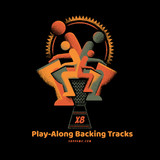What’s a Drummer to Do? Drum Racks vs. Drum Stands
Unless you’re a closet drummer, with probably the least amount of space possible for a full drum set, at some point you’re going to wonder one of the great drumming questions of all time: should you trust your beloved drums to a drum rack, or keep them safe on drum stands.
With the love of rhythm and drumming comes the understanding that out of all of the members of your band, or your friends who play guitar, keyboards or saxophone, you have the most gear and instruments to care for. It’s a big responsibility, and one that isn’t to be taken lightly. After all, your drums are your life, and they deserve only the best.
Much like any other question regarding drums, if you ask around, you’re going to get a bunch of different opinions. Lots of drummers swear by drum racks, while others scoff and point to their selection of drum stands. Most of this has to do with two points: the “footprint” of the drum set and the number of drums.
In other words, size does matter. In a few ways.
The benefits of a drum rack include:
- Less guesswork for setting up drums by anyone but the drummer. This includes roadies, other band members and the staff at the bar trying to help get your gear in place as soon as possible.
- Less time to adjust the drums, cymbals and accent percussion. Especially for those who use memory locks and for anyone who loves the feeling of being kind of like a Transformer (that rack is more than meets the eye!).
- Less time to remove the setup from a gig. This really comes in handy when you’re ready to bail from a gig, or have to get somewhere fast. Throw in a smoke bomb and you could even have your own magic show.
But, a drum rack also brings about:
- Lack of versatility. Just in case you’re the kind of drummer who might vary your drums or cymbals based on a gig or the music you’re about to play, the setup and adjustment process can take longer on a rack.
- Bigger footprint. You never know exactly how much space you’ll be given on a stage or where you’re practicing. If you’re short a few inches of floor space, your rack won’t do its job.
- Heavy metal isn’t just about the music. Drum racks can be heavy, and you probably have enough problems getting people to help haul your gear around.
On the other hand, you may prefer drum stands because:
- You can play favorites. With drum stands, you can take all of your drums, cymbals and percussion instruments, or, only a few, depending on what you’re doing.
- Smaller footprint. Although, this is debatable when you consider the legs of a drum stand, most people feel that drums on stands allow the configuration to expand or contract, as space needs require.
- International Variety. Drum stands allow the addition of djembes, bongos, timbales, conga drums and more.
- No Need for Muscle. Drum stands are much lighter than drum racks, which is great for anyone who has to carry them through the catacombs of a backstage area, or even across a parking lot.
But, still, drum stands can be a pain, since:
- They easily multiply. While lighter than a drum rack, drum stands generally grow in proportion to the number of drums, cymbals and percussion instruments used. It might be easier to convince people to help move six drums and a drum rack than six drums and six drum stands.
- Fine tuning is required. You may have to spend more time on the setup and breakdown of the drums and drum stands, and especially where you want them to be in terms of placement on both the floor, and any height or angle adjustments needed.
Just like the kind of drums you choose, the music you play and the shoes you wear, the “best” setup for your percussion passion is all about you. You may choose a drum set, a drum rack, a combination of both, or just throw your hands up in the air and dedicate yourself to hand drums that don’t necessarily require hardware to get your groove on. You’re a drummer, the rest will all fall (or rack, or mount) into place.
Recent Posts
-
X8 Drums Play-Along Backing Tracks
The new X8 Play-Along Series is being produced for our musician friends wanting a fresh way to work …9th Feb 2025 -
What is the Best Size Djembe for Beginners?
If you're new to the world of percussion and interested in learning the djembe, you're in for a t …16th Jul 2024 -
The Benefits of Becoming a Drumming Teacher: Transforming Passion into Profession
Why become a drumming teacher? Becoming a drumming teacher is an excellent way to share your pas …22nd May 2024



